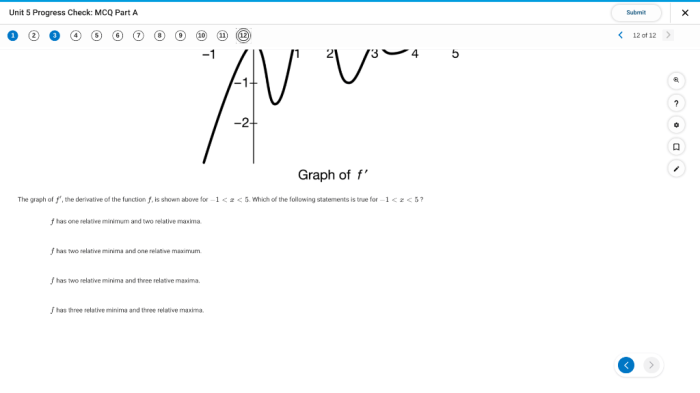Embark on an intellectual journey with Unit 5 Progress Check MCQ AP Bio, a comprehensive evaluation designed to assess your grasp of fundamental biological concepts. This assessment delves into the intricacies of photosynthesis, cellular respiration, genetic inheritance, and evolution, providing a thorough examination of life’s essential processes.
As you navigate this progress check, you will not only reinforce your knowledge but also gain valuable insights into the interconnectedness of biological systems. Prepare to engage in critical thinking, data analysis, and problem-solving, as you demonstrate your understanding of the principles that govern the living world.
Key Concepts

In this unit, we delve into fundamental biological processes that underpin the diversity and complexity of life on Earth. Photosynthesis, cellular respiration, genetic inheritance, and evolution are central concepts that provide a framework for understanding the intricate workings of living organisms.
Photosynthesis, Unit 5 progress check mcq ap bio
Photosynthesis is the process by which plants, algae, and certain bacteria convert light energy into chemical energy stored in glucose molecules. This process is crucial for life on Earth, as it provides the primary source of energy for most organisms and releases oxygen into the atmosphere.
Cellular Respiration
Cellular respiration is a set of metabolic reactions that break down glucose molecules to produce energy in the form of ATP. This process occurs in the mitochondria of cells and is essential for all living organisms to maintain their cellular activities.
Genetic Inheritance
Genetic inheritance refers to the transmission of genetic information from parents to offspring. This process is governed by the principles of Mendelian genetics and involves the replication and transmission of DNA molecules.
Evolution and Natural Selection
Evolution is the gradual change in the characteristics of a population over generations. Natural selection is the driving force behind evolution, favoring individuals with traits that enhance their survival and reproductive success in a given environment.
FAQ Insights: Unit 5 Progress Check Mcq Ap Bio
What is the significance of photosynthesis in the context of Unit 5?
Photosynthesis is the process by which plants and other organisms convert light energy into chemical energy, producing oxygen as a byproduct. It is essential for sustaining life on Earth and provides the foundation for food chains and ecosystems.
How is cellular respiration related to energy production?
Cellular respiration is the process by which cells break down glucose and other organic molecules to produce energy in the form of ATP. It is the primary energy source for most living organisms.
What are the key mechanisms of genetic inheritance?
Genetic inheritance involves the transmission of genetic material from parents to offspring. Key mechanisms include DNA replication, transcription, and translation, which ensure the faithful transfer of genetic information.
How does evolution contribute to the diversity of life on Earth?
Evolution is the process by which populations of organisms change over generations through the process of natural selection. It is responsible for the incredible diversity of life on Earth, as organisms adapt to their environments.


